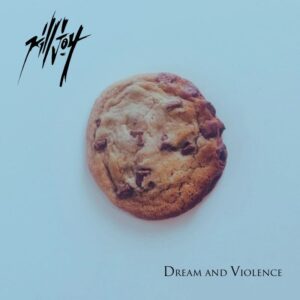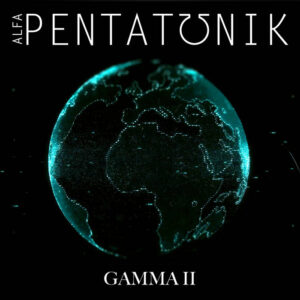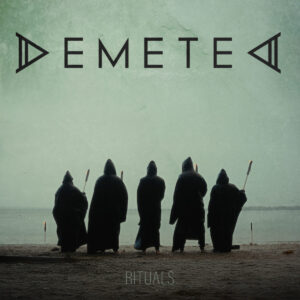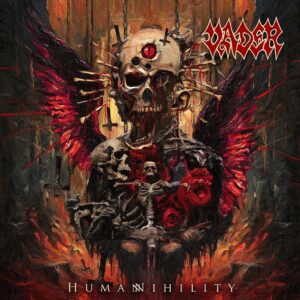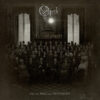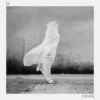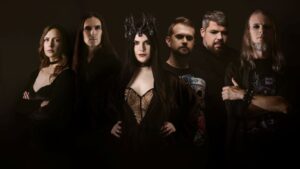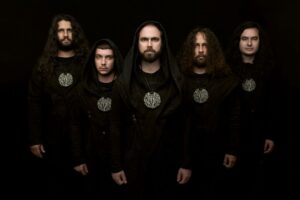Galatea
Unalei
•
February 8, 2021
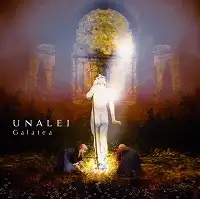
There is a lengthy description on UNALEI's Bandcamp page of what the Italian band's latest album "Galatea" means and is supposed to be about, including a full explanation of the title – in Greek myth, Galatea was a sculpture created by Pygmalion; he fell in love with it and the goddess Aphrodite brought it to life. (The '80s movie "Mannequin" was a take on the classic story, by the way. There's no song about the myth, though, or anything resembling it. In fact, none of what's presented about the album really translates or gets across, unfortunately – if you never visit the page, you'll be just as far along as if you did.
The piano instrumental "La Bussola" (or "Compass") serves as introduction, the first of several such brief pieces throughout the album, their third (previous ones were 2016's "Taedium Vitae" and 2014's "A Sua Immagine"). The first proper track, "Anarada," is sung in Italian, as many of them are. A loose, shambling rhythm from the drums (that borders on sloppy) and the guitar and a mix that lacks resonance are problematic, as are nearly-an-afterthought vocals that are as shambled out as the groove (the two are rather at cross purposes and don't fit together especially well). The second verse is hushed, with words fired out by Karim alone and briefly with Federica; there's no real chorus except for an instrumental part. There's a little double-kick drumming along with the orchestration (heavy on French horn and strings), some choir vocals, and that guitar shamble again, and it ends with the toll of a bell. It's an odd little thing; it kind of zips by without making an impact, positive or negative.
Another brief interlude, "Odense, December 24, 1848" (the significance of the date is unclear), is not even an instrumental – it's the sounds of walking feet, a trotting horse (and its whinny), the faint tolling of bells, and the sound of a match being struck, which, conveniently enough, leads to..."The Little Matchgirl," their take on a Hans Christian Andersen fairy tale about a destitute girl selling matches to survive. The tender piano and guitar is suitably somber, and it's sung at first by Federica in a fragile, tragic soprano – and you never hear her sing again, which winds up being a frustrating loose end. The rest is Karim singing – in the second verse, it's about how no one notices the little girl ("The longest night is every night that someone sees another's pain and shows no care"). The first chorus is a plea ("Buy the matches ... oh please sir feed me"); the second has a twist (the girl sees a woman who looks like her mother). There's a little segue/bridge where he says she's afraid to go home if she hasn't sold her matches "cause Daddy's gonna cuff her" – the lyrics are a little awkward, a little wordy, but they do convey the story. The musical interlude is that same basic initial melody at its heart, then it swings into another shambling, offhand rhythm where Karim delves into social commentary ("I don't even know her name/But I feel like I'm part of this human shame"). A later section where he describes her remembering better times is eerie and off-putting because it's set to a keening organ melody – the memory is pleasant but the music is not. An odd guitar solo is paired with a double-kick part that doesn't match at all; they are fighting at every step. The final part is the girl dying and remembering her grandmother, who was the only person who cared for her, according to the tale. But instead of it feeling like release and salvation, like the poor child has found peace, it's just flat. It ends on piano and bass and acoustic guitar in a very unsatisfying, unresolved way. It's supposed to be an emotional, evocative story, an allegory and commentary about poverty, but their matter-of-fact treatment of it makes you feel virtually nothing.
"Gloria," also in Italian, has deft guitar strumming and a nice light stomping rhythm. But brief spots of electric guitar here and there get unnecessarily harsh and are at odds with the rhythm, which keeps changing so you can't ever get a grip on it. Karim's voice is nothing special, it's just there – he sings sweetly, his melodies are simple, but he employs no real vibrato or other such flourishes. Here too we get weird double-kick drumming, which is discordant and jarring and doesn't fit. This has no actual structure, nothing hangs harmoniously together – it almost sounds as if it was built around the guitar soloing of Massimiliano Pagliuso, which is fine, if a bit excessive.
In "Azalea," Karim's voice is so quietly mumbling as to be barely audible. Later, when he whispers a verse, it renders the barely audible completely so (if you don't have lyrics, you'll have no idea what he says). The musical idea, the melody, is pleasing and consistent throughout, which is good (and the fretless bass in spots is notable), but what the exact sentiment is is unclear (is it a love song?). The lyrics have no real flow and are again excessively wordy with awkward imagery – lines like "The laments in my honor/The roaring thunder of your pleasing for more" and "You don't need to have a name/It's enough the embers smoking frame" are a bit baffling. Another brief interlude comes with the instrumental "Portagioie" (roughly "jewel case" in English) – its otherworldly sound is reminiscent of a music box with its piano and very light orchestration, so the translation makes sense. I'm still not sure what the purpose of these little pieces is, but there you go.
"Livida (Amore o Morte)" ("Bruised/Love or Death"), again sung in Italian, shows again that the tracks done in their native tongue are stronger overall, with definite structure and arrangements that make sense. Based again in piano and acoustic, it also features a hushed, lower-end vocal by guest Alessandro Sforza that's not mixed loudly enough. The harmonies and traded lines between him and Karim are fine, and there's a pleasant fretless bass solo (a sound you don't hear often and it's unique, warm and liquidy and rich). But again, it makes no real impact one way or the other, just comes and goes. "Aurea Mediocritas" ("the golden mean," or "the moderate course" in Latin) is nothing but a recited vocal in Greek by Natalia Lapshina set to a bit of piano and orchestration. Again, what the point is is ... who knows.
The closer, "Lola," also in Italian, starts with a sprightly, bouncy rhythm with orchestration and guitar, hitching drumming, and Federica and Karim both alternating lines and singing together, and that's all well and good. But it winds up making so little sense as to be unlistenable – it's the kitchen sink. There are parts that are OK, ones that became familiar during the course of the track that your ears recognize, but they shift so nonsensically into parts that are not OK (the double-kick drumming, the undermixed heavy guitar, the brief screamed and whispered vocal – all attempts at heaviness that don't work at all) – that you're left completely confused.
"Galatea" is nothing really resembling metal in any form, and it's an ill-constructed effort altogether, one that's striving for something lofty but just doesn't get there.
5 / 10
Mediocre
Songwriting
Musicianship
Memorability
Production

"Galatea" Track-listing:
1. La Bussola
2. Anarada
3. Odense, December 24, 1848
4. The Little Matchgirl
5. Gloria
6. Azalea
7. Portagioie
8. Lívida (Amore o Morte)
9. Aurea Mediocritas
10. Lola
Unalei Lineup:
Karim Federico Sanna - Vocals, Guitar, Piano, Drums, Ocarina, Flute, etc.
Fabio Fraschini - Bass
Dario Vero - Slide Guitar, Glockenspiel
Federica Catalano - Vocals
More results...

